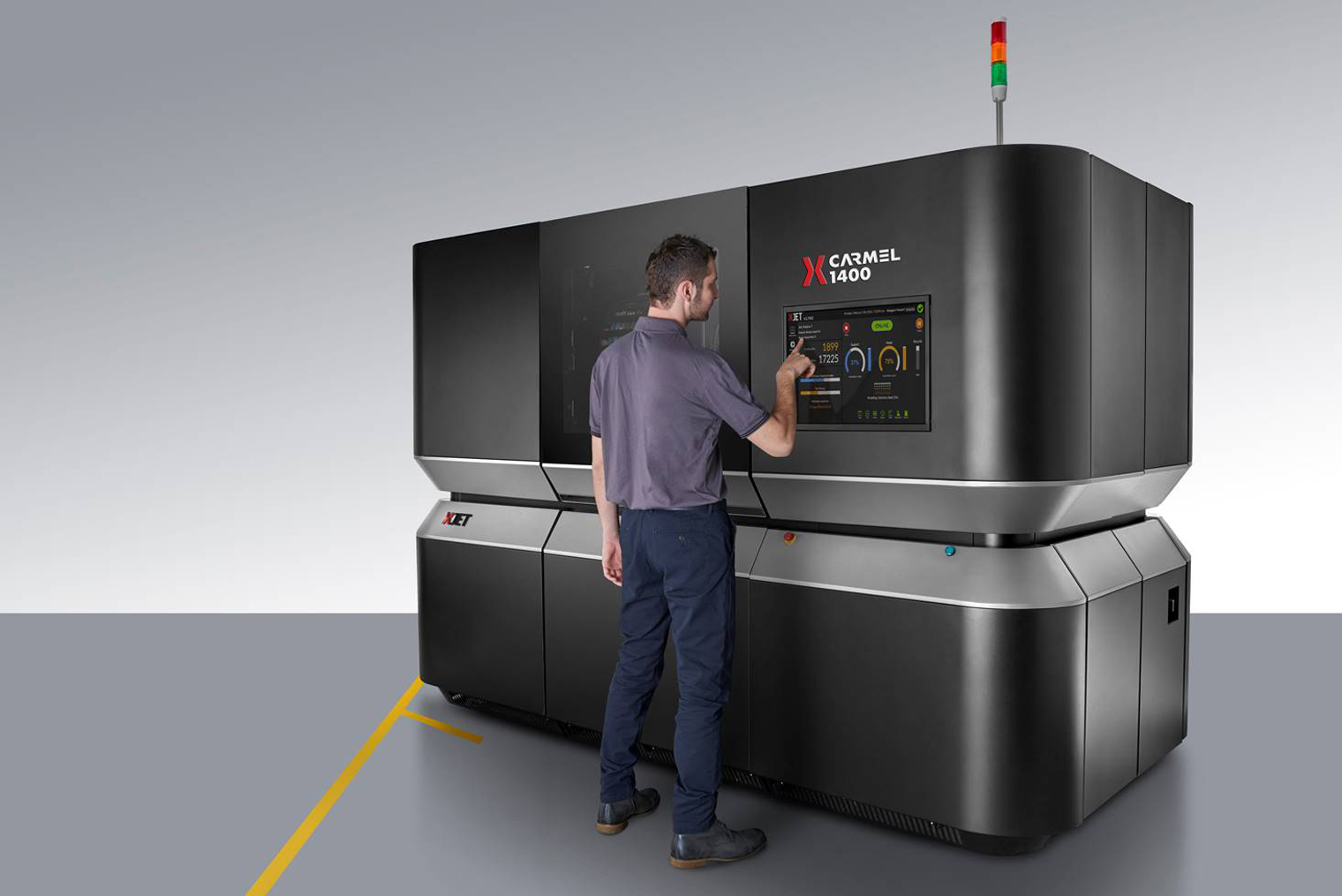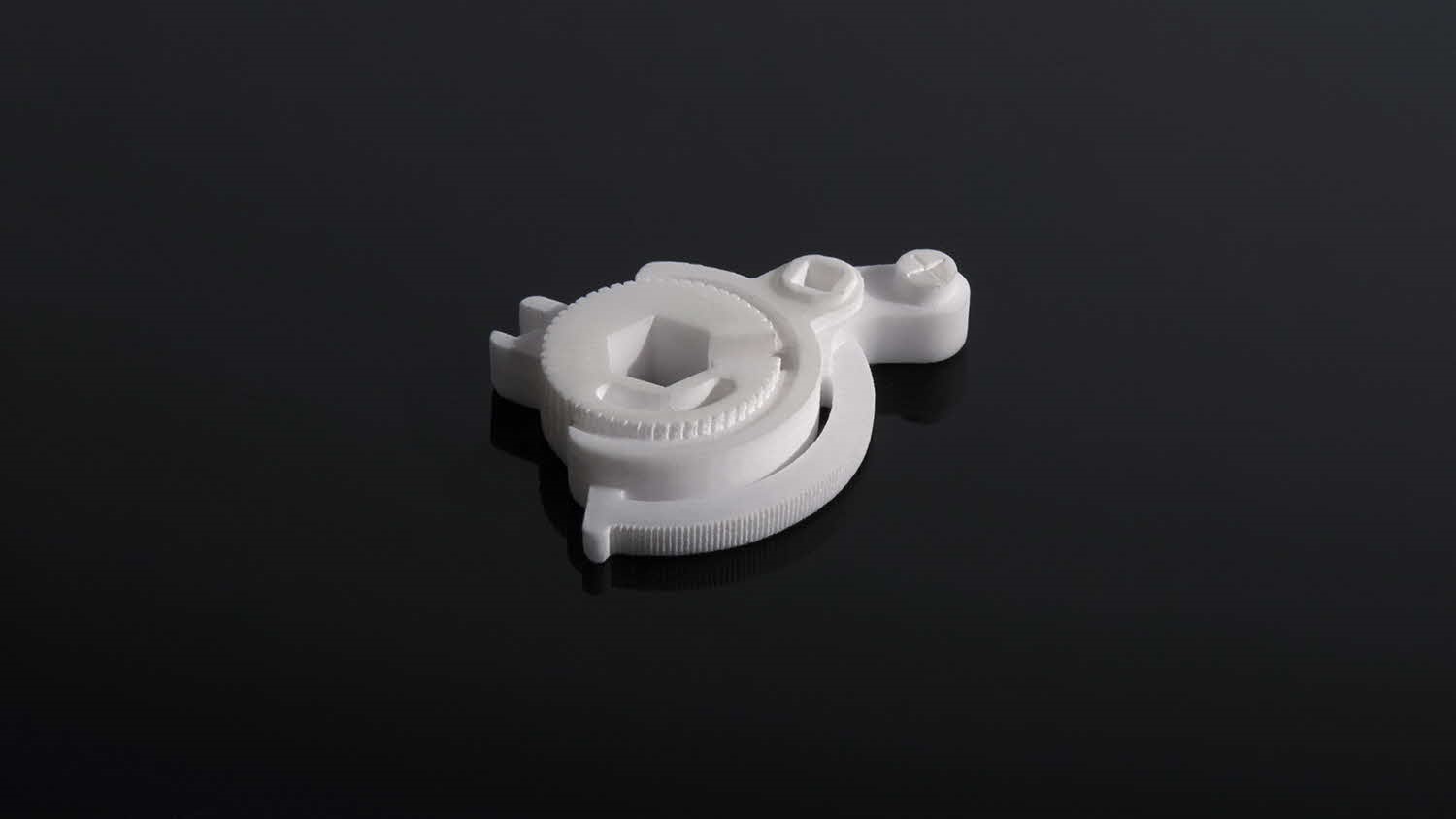XJet, an Israel-based 3D printer and materials manufacturer, has announced the release of new ceramic and soluble support materials. Moreover, the 3D printer manufacturer has also partnered with BeamIT, an Italian additive manufacturing bureau.
On the partnership with BeamIT, Hanan Gothait, CEO of XJet, said “We’re delighted to be working with a company of BEAMIT’s heritage. Its extensive customer base means we can expect to see some very interesting applications over the coming months.”
XJet is displaying its manufacturing capabilities at this year’s formnext, Hall 3.1, Stand D80.

Alumina, XJet ceramic material
XJet printers use the company’s trademark technology, known as NanoParticle Jetting (NPJ). In this method, solid nanoparticles are jetted into a liquid which forms a shell around the nanoparticles. Once the build layer is formed the liquid evaporates at 300Cº, leaving behind only the build material. This way, the NPJ method avoids melting the materials.
Furthermore, the material used in XJet’s printers comes in sealed cartridges, making the material loading and unloading process safer. The Carmel 1400 and the Carmel 700 are two XJet machines which employ NPJ. Both additive manufacturing systems can print using metal and ceramic material.
Now, the company has introduced alumina, a conductive ceramic material. Alumina offers good electric and thermal resistance and is known for chemical stability. It is commonly used in the industry as an electrical insulator and heat element support material.
However, compared to zirconia, another ceramic material offered by XJet, alumina is mechanically less strong, and its application is not as wide as the zirconia, which has biomedical, electrical and even luxury applications. On the development of the new material, Gothait said:
“The new alumina material development was sped up thanks to the availability of dedicated systems for this purpose in the last few weeks. Whilst XJet NanoParticle Jetting technology is in itself unique, offering distinct advantages, we’re examining every part of the process for opportunities to push the envelope, from the hardware, the material chemistry and beyond.”
In addition to alumina, XJet has also introduced a soluble support material. This support material can be easily removed by dipping the 3D model into a post-processing solution bath. The removal process does not harm the geometry or the quality of the original 3D model.

BeamIT acquires Carmel 1400
BeamIT, one of Italy’s largest 3D printing service bureau, has acquired XJet Carmel 1400. It is said to be the first machine in Italy installed by XJet. The Carmel 1400 will make ceramic 3D printing available to BeamIT’s customers.
Mauro Antolotti, President of BeamIT, said, “Our customers have experienced the numerous benefits AM production brings to metal parts and many of them would love to see that in ceramics too.”
Furthermore, through the Carmel 1400, BeamIT will also provide an alternative to traditional casting methods in metals applications.
BeamIT is also a partner with German metal 3D printer manufacturer, SLM, which has provided the service bureau with two metal 3D printers, the SLM 280 2.0 and SLM 500.
BeamIT can be visited at the ongoing formnext, Hall 3.1, Stand H21.
Stay updated with the latest 3D printing news from Formnext by subscribing to our 3D printing newsletter. You can also follow us on Twitter and Facebook.
Visit our 3D Printing Jobs to start a new career in 3D printing.
Featured image shows alumina, XJet’s latest ceramic release. Image via XJet.

